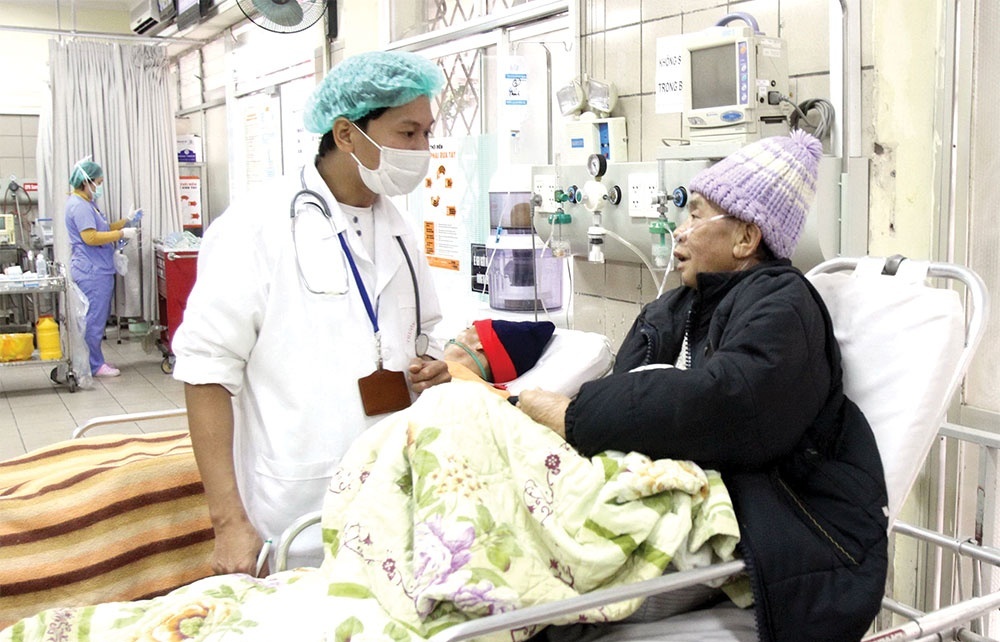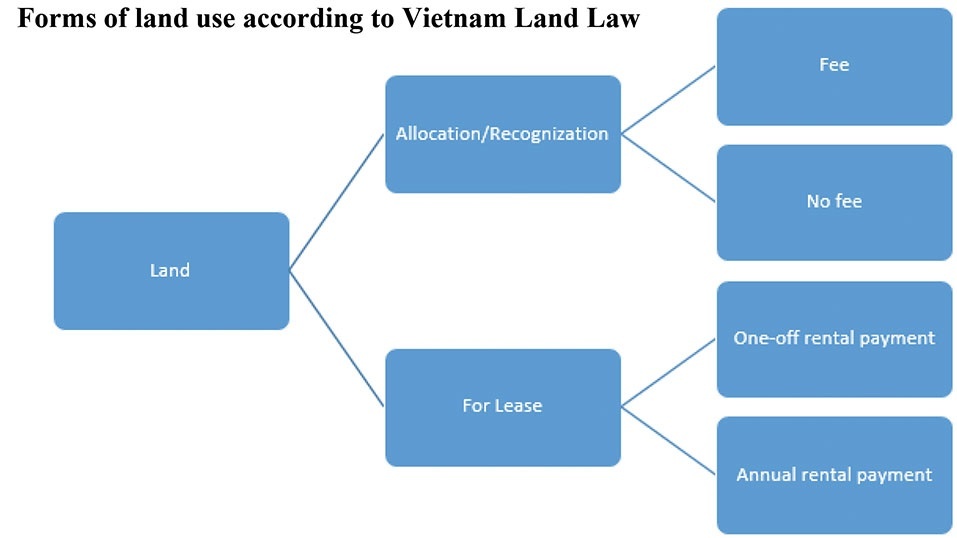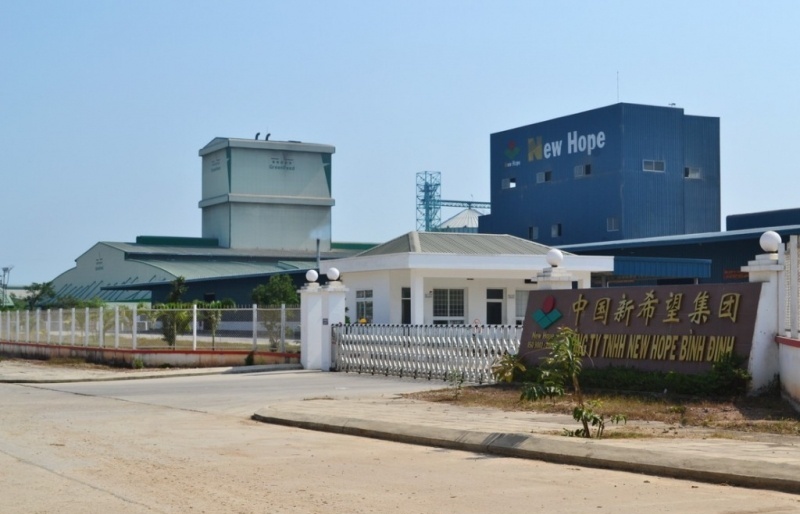The impacts of investment restriction on non-production areas and the investment environment
 Foreign direct investment (FDI) in Vietnam during 2010 and 2011 has been decreased from the peak of 2007- 2008, partly from the effect of global economic crisis, but mainly from the lack of competitiveness of Vietnam economy. As a consequence, the country goes into the circle of lack of foreign investment – lack of export – trade deficit – weak competitiveness – again lack of foreign investment. The key issue to counter trade deficit is therefore to promote foreign investment.
Foreign direct investment (FDI) in Vietnam during 2010 and 2011 has been decreased from the peak of 2007- 2008, partly from the effect of global economic crisis, but mainly from the lack of competitiveness of Vietnam economy. As a consequence, the country goes into the circle of lack of foreign investment – lack of export – trade deficit – weak competitiveness – again lack of foreign investment. The key issue to counter trade deficit is therefore to promote foreign investment.
However, which sector in foreign investment should be promoted? From the outset, one may think that the Government should promote the manufacturing and high-tech sector and restrict non-manufacturing sector. However, one needs to bear in mind that each sector is linked together. Therefore the investment in non-manufacturing sectors may have positive impact on manufacturing sectors or export sectors.
Unfortunately, the mercantilist view seems to prevail in the Prime Minister’s Directive No. 1617/CT-TTg dated 19 September 2011 on strengthening of implementation and correct management of foreign direct investment in the future (the “Directive”). The Directive noted that:
“However, besides the achievements, shortcomings in attracting foreign investment and management time have not been solved. … Many projects have not been verified, examined the technical criteria, technology, environment, employment ... lead to the project quality is not high, missing link between FDI and domestic enterprises. In addition, the inspection and supervision of the obligations of investors on the capital contribution schedule, funding, and construction activities, environment, technology transfer, implementation of obligations with employers and financial obligations to the State is not good, lack of coordination between ministries, sectors and localities.”
Therefore, Directive 1617 instructed the Ministries and the People’s Committees at provinces to encouraged FDI by “masterplan”, which gives priority to projects that have attracted modern technology, focusing on areas attract support industrial, agriculture service industrials and services that [Vietnam] has advantages. On the contrary, the Directives states that: “Restriction on investment in non-manufacturing sector, increasing trade deficit, energy consumption, exploitation without processing.”
Without considering whether such restriction may affect Vietnam’s WTO Commitment on investment, my argument is that restriction on investment in non-manufacturing sector may increase trade deficit. For example, for a foreign investor to develop a hi-tech park, it must attract investors with good infrastructures, including social infrastructures, such as school or hospitals, hotels and residential areas, supermarket and logistics and warehousing services. Hi-tech park needs high-tech workers who have high salary and need different demand for life and leisure. If one understands hi-tech to mean simply build an industrial park for high-tech investors, there is no high tech industry investment.
Another example is the link between manufacturing and trading. Most leading manufacturers are also leading traders. Unilever, Tan Hiep Phat, or IPC could be example. For foreign investors, they need to develop domestic market before they could think of introducing production. Therefore, trading will go together with manufacturing. Investors, especially Japanese investors are strong in both manufacturing and trading. Manufacturers could jointly invest with traders so that the effect of investment would be higher.
Moreover, even distribution companies may have positive impact on manufacturing industries. Take an example of pharmaceuticals. In Asia for the time being only Vietnam restricts foreign investment in pharmaceutical distribution. The restriction of foreign distributors, plus the additional margin and other fees and expenses from local distributors which can be excessive from the beginning would create counter effect on the drug price. As a consequence, pharmaceuticals become rare and expensive for consumers. To make the matter worse, foreign investors are restricted from providing health insurance as such they could not form an alliance to negotiate the drug price with local distributors effectively. The drug price therefore cannot be reduced. Had the Government open both the pharmaceutical distribution and the health insurance service, the number of suppliers will increase and the drug price will decrease. Moreover, as there are more health insurance providers, the chance that they could form alliance to negotiate drug prices with suppliers could be more realistic.
My main conclusion is that one need to look at all sectors as an Darwinian eco-system. A killing of one type of [arguably bad] animals will cause the raise of any other [even worse] animals. This is better that in this eco-system, the Government will play a role of environment designer rather than imposing top-down policy on what is good and what is bad for the economic regardless of considering the specific needs and specific situation. Already, foreign investors complained about the burdensome process of investment assessment with questions from five to ten different ministries, and too often licensing authorities missed deadline as provided by law. The tiredness of the investors without understanding the logic of restriction, not even a clear restriction in the law (rather than in a Directive) would affect negatively the trust of foreign investors in Vietnam.
This cannot go on for much longer. Vietnam is now facing tremendous opportunity for foreign investment: investment waive from Japan, other foreign investors seriously consider Vietnam in addition to China, to name two factors. However, one should not forget that foreign investors now eye to Indonesia for macro-economy stability and even to Thailand after the general election that creates hope of political stability.
This negative attitude towards “non-manufacturing” sector has to change. Otherwise, the manufacturing sector cannot increase the price of many imported products (such Pharmaceuticals) will not decrease and therefore trade deficit will likely to increase, and the economy may continue to suffer. If the policy to restrict investment in non-manufacturing sector is not re-considered or circumstantial specific, its impact on economy may do more harm than good.
Le Net, LNT & Partners (net.le@LNT-partners.com) www.LNT-partners.com
What the stars mean:
★ Poor ★ ★ Promising ★★★ Good ★★★★ Very good ★★★★★ Exceptional
Latest News
More News
- The wider benefits of digital signatures in e-transactions (April 18, 2022 | 11:31)
- Interpreting new real estate statutes (August 23, 2021 | 09:20)
- Mitigating procedural delays in pharmaceutical market (July 12, 2021 | 13:00)
- Pros of sandbox regulation for fintech (July 09, 2019 | 13:36)
- Wind power barriers need removing (April 02, 2019 | 09:55)
- Advice for foreign home ownership (November 16, 2015 | 08:37)
- Revised legal framework benefits foreign investors (October 26, 2015 | 07:36)
- Important documents regulating bank guarantee (September 19, 2015 | 11:11)
- Law Changes Open up Opportunities in Property Sector But Questions Remain (September 04, 2015 | 11:27)
- Decree eases constraints (July 27, 2015 | 08:48)
















 Mobile Version
Mobile Version